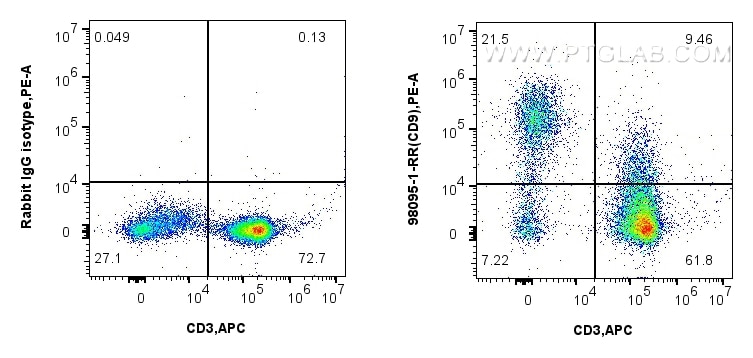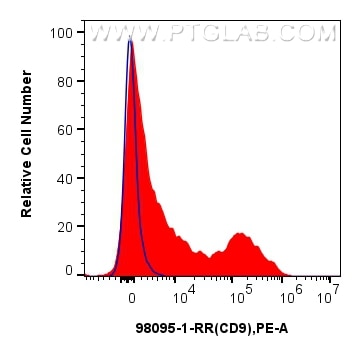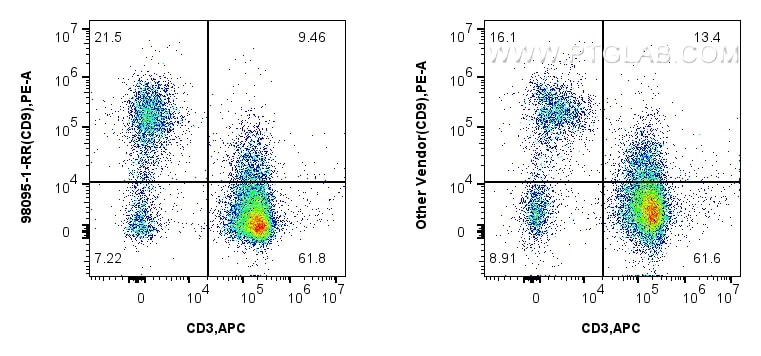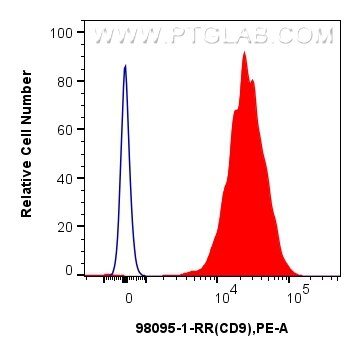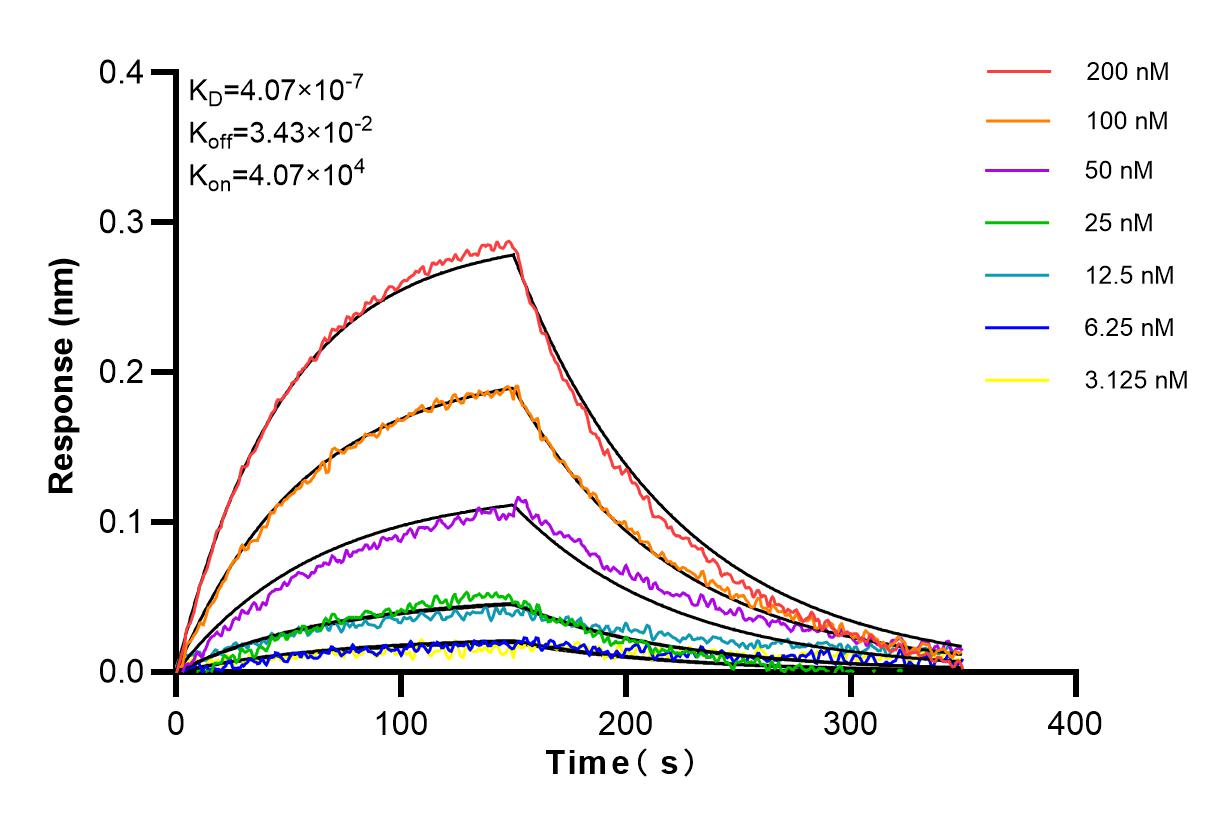Validation Data Gallery
Tested Applications
| Positive FC detected in | human PBMCs, human peripheral blood platelets |
Recommended dilution
| Application | Dilution |
|---|---|
| Flow Cytometry (FC) | FC : 0.25 ug per 10^6 cells in 100 μl suspension |
| This reagent has been tested for flow cytometric analysis. It is recommended that this reagent should be titrated in each testing system to obtain optimal results. | |
| Sample-dependent, Check data in validation data gallery. | |
Product Information
98095-1-RR targets CD9 in FC applications and shows reactivity with human samples.
| Tested Reactivity | human |
| Host / Isotype | Rabbit / IgG |
| Class | Recombinant |
| Type | Antibody |
| Immunogen |
CatNo: Eg1037 Product name: recombinant human CD9 protein Source: mammalian cells-derived, pHZ-KIsec-C-6*HIS Tag: C-6*HIS Domain: 112-195 aa of NM_001769.4 Sequence: SHKDEVIKEVQEFYKDTYNKLKTKDEPQRETLKAIHYALNCCGLAGGVEQFISDICPKKDVLETFTVKSCPDAIKEVFDNKFHI 相同性解析による交差性が予測される生物種 |
| Full Name | CD9 molecule |
| Calculated molecular weight | 25 kDa |
| GenBank accession number | NM_001769.4 |
| Gene Symbol | CD9 |
| Gene ID (NCBI) | 928 |
| RRID | AB_3672242 |
| Conjugate | Unconjugated |
| Form | |
| Form | Liquid |
| Purification Method | Protein A purfication |
| UNIPROT ID | P21926 |
| Storage Buffer | PBS with 0.09% sodium azide{{ptg:BufferTemp}}7.3 |
| Storage Conditions | Store at 2 - 8°C. Stable for one year after shipment. |
Background Information
The cell-surface molecule CD9, a member of the transmembrane-4 superfamily, interacts with the integrin family and other membrane proteins, and is postulated to participate in cell migration and adhesion. Expression of CD9 enhances membrane fusion between muscle cells and promotes viral infection in some cells (PMID:10459022). It is often used as a mesenchymal stem cell marker (PMID:18005405).
Protocols
| Product Specific Protocols | |
|---|---|
| FC protocol for CD9 antibody 98095-1-RR | Download protocol |
| Standard Protocols | |
|---|---|
| Click here to view our Standard Protocols |

